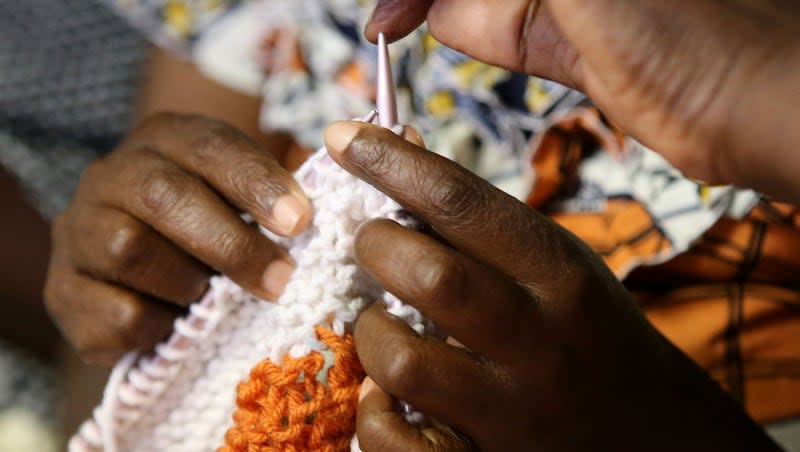How ‘therapeutic knitting’ can improve mental health

Knitting may not be the first thing that comes to mind when thinking about mental health, but a new study from a Swedish university points to this tactile creative activity to help those living with mental health challenges. The study was published in the Journal of Occupational Science.
“Knitters have a creative leisure interest that can also help them to cope with life and so improve their mental health. I’m convinced that this is part of the reason why so many people have taken up knitting these days,” said Joanna Nordstrand, one of the study’s authors, in Medical Life Sciences. She is an occupational therapist and Ph.D. student at the University of Gothenburg in Sweden, and a knitter herself.
Researchers collected nearly 600 posts from the international fiber arts forum Ravelry, an online community of global knitters. The participants described how knitting affected their mental health. According to Medical Life Sciences, the study identified three ways in which knitting supports improved health: it helps people to unwind, it offers people an identity of a knitter and it creates structure in people’s lives.
One study participant wrote, as quoted by Medical Life Sciences: “While my hands are busy doing something, my mind slows to a crawl, and I am actually able to think about one thing at a time … rather than having 20-30 threads all going at once.”
Knitting therapy has emerged as a research-proven alternative to more standard therapies offered in response to mental health problems. On her website Counseling Nook, licensed professional counselor Cassandra Dominick lists benefits of knitting for stress relief and concentration, anger management and empowerment, and reduction of trauma, among others.
The Craft Yarn Council reported that a third of women ages 25 to 35 knit or crochet, according to a New York Times article. Men and schoolchildren have been picking up the hobby, too.
Australian registered psychologist Sahra O’Doherty described to The Guardian the benefits of knitting and crocheting for mental health. “Our heart rate and breathing even out and we have lower blood pressure,” O’Doherty said.
Another study seems to support the work of the Swedish researchers. Published in 2021 in Perspectives in Public Health, the study looked at the benefits of crocheting among women between ages 41 and 60 years, living in 87 countries. Participants reported that crocheting made them feel calmer, happier and more useful. “The data suggests that crochet offers positive benefits for personal wellbeing with many respondents actively using crochet to manage mental health conditions and life events such as grief, chronic illness and pain,” the authors wrote. Another benefit: The activity is portable and inexpensive, important factors that lower the barrier for entry.
Knitting can also be a useful social glue, particularly for those who struggle with social anxiety, according to The Guardian: “It can alleviate the pressure of eye contact or small talk that might come with more extroverted activities.”

